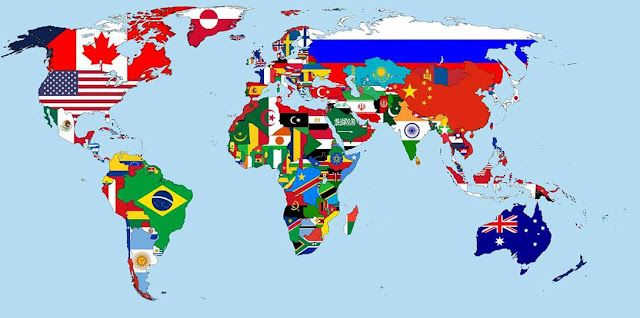 |
Why
have technology transfer strategies not been successful in Pakistan? Are we
moving globally intended to technology transfer for nothing? Conceptually, the relation
between technology transfer and foreign policy is rather an old phenomenon.
Throughout the world history, they mutually influenced and had an impact on
each other. Scientific age is said to have begun in seventeenth century. Later,
technological development went alongside the economic growth. By the end of
nineteenth century, role of science had become related to applications more
closely as industrial research. In the twentieth century,
industrial research became a self-sustaining system and vital factor in the amplification
of technological innovation. When we come to the post-Cold War ear and the
twenty-first century, new challenges have become more prominent, such as
environmental security and climate change, health and biosafety, biotechnology
and biomedicine, cyber security and bioterrorism, food safety and genetically
modified crops, nuclear proliferation and civil use of nuclear power, weapons
of mass destruction, energy and water supplies, humanitarian crises etc. In
today’s world, many of the global challenges have a scientific aspect and no
one single nation is capable of tackling these challenges alone. These new global
challenges required new techniques for international cooperation, technology
transfer and diplomacy. In other words, “global problems require global
solutions”.
In
this context, Science Diplomacy – hereafter SciDip, as a concept and a
non-traditional method of diplomacy and international relations had gained
importance. In reality, it is not new, but as a concept it is quite
contemporary. As can be exemplified through different country examples, the
British Royal Society, which was established in the eighteenth century, has
always used science as a tool to solve military and political problems. The
concept gained importance, especially after the World War II, but even before
the United Kingdom (UK) appointed its first accredited scientific
representative to Washington in 1941. Then another British representative was
sent to China between the years 1942-1946. NATO set up a science program in
1957 and US National Academy of Science (NAS) ran parallel Committees on
International Security and Arms Control (CISAC) together with the Soviet Union
Academy of Sciences (ASUSSR). After the end of the Cold War, the activities of SciDip
gained a momentum is the countries like UK, USA and Japan etc. In the US, the
post of Science and Technology Adviser to the US Secretary of State was established.
In terms of the UK, their government established the Science and Innovation
Network (SIN). This network is comprised of more than ninety staff working in
forty cities in twenty-five countries and their main aim is to promote the
scientific expertise of UK abroad and to build international collaborations in
the area of S&T. Japan is another active country in this respect and has a
formal SciDip policy since 2007 with the aim of increasing participation of
Japanese scientists into international research programs, providing
international scientific advice, and building scientific capacity.
In
our globally-interconnected society where urgencies of the present and future
meet today – S&T advice in foreign ministry is part of the solution to
address the issues, impacts and resources within, across and beyond the
boundary of state. Today, we are witnessing a growing presence of S&T in
the whole UN system and the 2030 Agenda decisively admit not only the critical
role of S&T but also formalizes its alliance through the establishment of
initiatives such as the Technology Facilitation Mechanism (TFM). Correspondingly,
technology transfer is an important issue and key component of economic and
social development of Pakistan. The successful implementation of technology
transfer depends not only on good technical specification but also, on the
right social, political and institutional environment. The existing capacity of
institutes in Pakistan is not sufficient and the situation demands that the
Government of Pakistan (GoP) must establish merit-based institutions, with
proper technical manpower to deal with the problems relevant to technology
transfer and technological development. As said by Lewis M. Branscomb, “Unless
scientist and policymakers learn to work together effectively, both domains
will suffer”. In Pakistan, there is escalating obligation on policymakers for
science advice to transfer of technology because scientific evidence may help
to manage risks and facilitate them to formulate better and effective
regulatory and legislative decision. In this regards, the GoP may perform the
following roles:
·
Device the SciDip based foreign policy
and integrates a science perspective into traditional foreign policy and
creates an information platform for SciDip.
·
Establish the coordinating office for
SciDip to highlight the connection between science, social and economic
development.
·
Establish effective mechanisms for
ensuring appropriate and timely scientific advice and define clear and
transparent framework and rule of procedure for advisory process and mechanism.
·
Implement measure that build societal
trust in science for policymaking and work with international organizations to
ensure coherence between national and international scientific advisory
mechanism related to complex global challenges.
·
Utilize science and technology personnel
in diplomatic activities/missions and promote strategic joint research development
with regional countries with high diplomatic importance.
·
Continue its efforts to strengthen good
governance, with the emphasis on merit-based institutional development and rule
of law. And, exceptionally eliminate corruption and nepotism from the society.


No comments:
Post a Comment